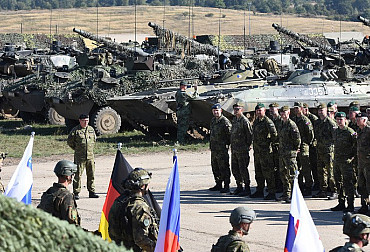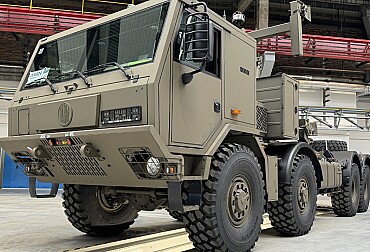Sahiba Gafarova, Speaker of the National Assembly of the Republic of Azerbaijan, visited the Czech Republic
The Czech Republic was recently visited by a prominent politician from a Muslim country that is a major supplier of oil to the Czech Republic, the Speaker of the National Assembly of the Republic of Azerbaijan, Sahiba Gafarova, who had a quick meeting with the Speaker of the Chamber of Deputies, Markéta Adamová Pekarová, the President of the Senate, Miloš Vystrčil, and Foreign Minister Jan Lipavský.
"Azerbaijan is an important strategic partner of ours, especially in the field of energy. The oil we import from there covers about a quarter of our total consumption, making our country one of the main importers of Azerbaijani oil. In this way, our good relations contribute to ensuring our own raw material self-sufficiency and energy security," said Markéta Pekarová Adamová, Chairwoman of the Chamber of Deputies.
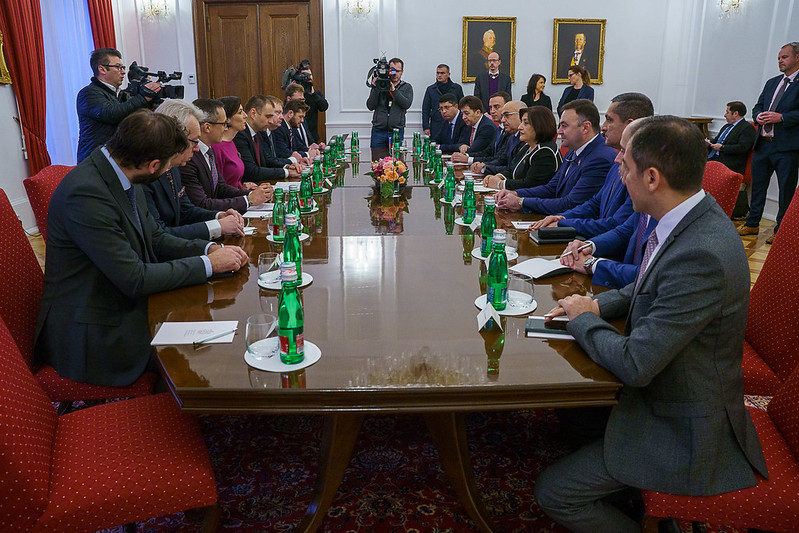
Foreign Minister Jan Lipavský commented on the meeting with the Speaker of the Parliament of the Republic of Azerbaijan on the social network X. "I was pleased to meet with the Speaker of the Azerbaijani Parliament Sahiba Gafarova. We talked not only about the importance of the alliance between our countries, but also about the possibilities of cooperation in the fields of energy and infrastructure, and the possibilities of achieving peace in the region."
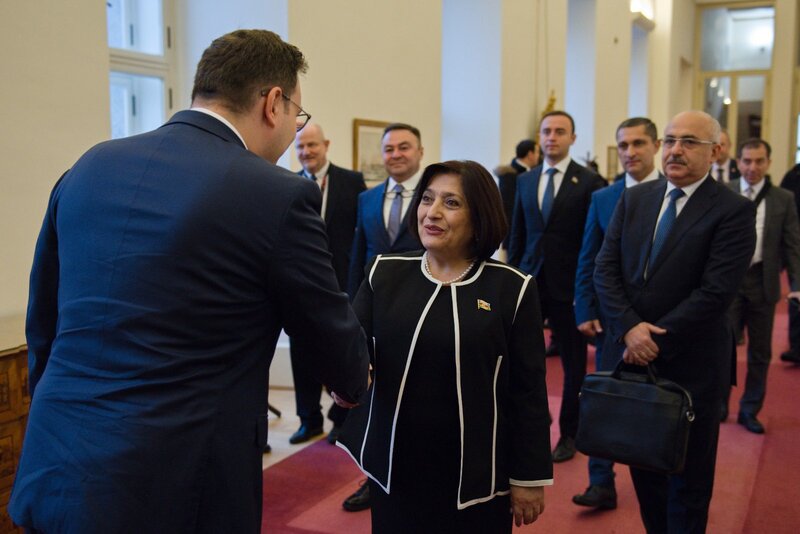
Azerbaijan is a state of ten million people in the East Caucasus region, which is in an extremely difficult geopolitical position. It is bordered by Russia to the north, Iran to the south and Armenia to the west, and its eastern shores are washed by the Caspian Sea. More than a fifth of Azerbaijan's territory was until recently occupied by Armenia, which occupied it during the war in the 1990s and forced several hundred thousand Azerbaijani residents to flee. It should be noted that the involuntary "ethnic exchange" was mutual. A significant part of the Armenian minority, originally numbering about a quarter of a million, left Azerbaijan. Today, forty thousand Armenians live in Azerbaijan, some of them in mixed marriages, while not a single Azerbaijani has officially remained in Armenia as a result of the ethnic cleansing, out of an original population of around two hundred thousand.
After thirty years of unsuccessful negotiations on the return of the occupied territories and the status of Karabakh, Azerbaijan resorted to the last resort of restoring its territorial integrity in 2021, defeating Armenia militarily during the so-called 44-day war and liberating most of the occupied territory, including the regional urban centre of Sush.
The conflict, however, left open the question of Karabakh, a landlocked Azerbaijani region with a strong Armenian minority, which was originally the focus of the war in the 1990s. The enclave remained under the military control of Armenia after the 44-day war, with a de facto Russian military mission of more than 2,000 armed "peace monitors" working in its favour as part of the terms of a ceasefire negotiated by Russian President Vladimir Putin as overseer and Armenian protector at the end of the 44-day conflict. In September 2023, Azerbaijan took advantage of Russia's preoccupation and weakening in the wake of the conflict in Ukraine, breaking the armed resistance of Armenian militias in Karabakh in a single day and restoring sovereignty over its entire internationally recognized territory.
The Armenian population, which in Karabakh was concentrated mainly in the town of Khankendi, was offered Azerbaijani citizenship with all political and social rights. However, due to decades of hostility, deep-rooted mistrust, as well as the difficult economic conditions of life in the poor mountain region, the majority of the Armenian population chose to leave for Armenia or other countries. Azerbaijan, however, continues to protect their abandoned property and offers them the opportunity to return, for which a special online registration portal has been set up in Armenian, Russian or even English. It is seeking a permanent peace treaty with Armenia.
The conflict between Azerbaijan and Armenia, and events in the Caucasus in general, is not a topic that is at the centre of public and media attention in the Czech Republic. However, when the Czech media do report on it, they tend to side with the Armenian side. In the atheist Czech Republic, there are even otherwise unprecedented arguments about Armenia as the cradle of the Christian religion. On this account, it is worth noting that Azerbaijan is an extremely religiously tolerant country with a significant Christian and even Jewish minority.
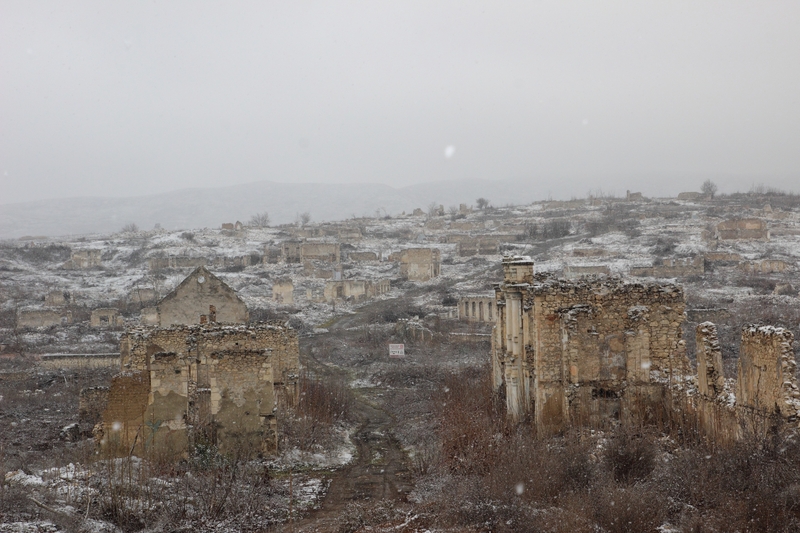
It is important that the recent visit of the Speaker of the Azerbaijani Parliament Sahiba Gafarova and her meetings with Miloš Vystrčil, Markéta Pekarová Adamová and Jan Lipavský took place in an extremely friendly spirit. It was a unique opportunity for the Azerbaijani delegation to explain their view of the reality in the region. The two hostile nations now have a historic chance to make a lasting peace, which would also mean the easing of the economic blockade and isolation of Armenia, which paradoxically has the best relations with its southern neighbour Iran. Czech diplomacy should contribute to this as much as possible.






